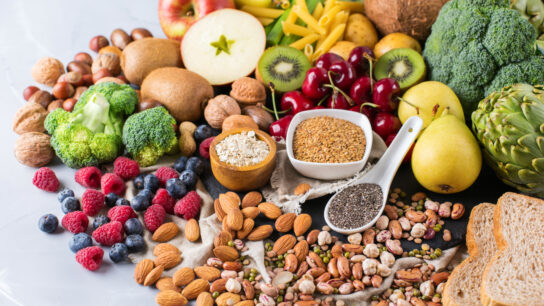Introduction
Liver, often referred to as nature’s multivitamin, is a nutrient-dense superfood packed with essential vitamins, minerals, and nutrients. Despite its rich nutritional profile, liver is often overlooked or avoided in modern diets. In this comprehensive guide, we will explore the numerous health benefits of liver, its nutritional composition, cooking methods, and common questions surrounding its consumption. By understanding the value of liver as a superfood, you can unlock its potential to support overall health and vitality.
The Nutritional Powerhouse of Liver
Liver, whether from beef, chicken, pork, or other animals, is one of the most nutrient-dense foods available. It is rich in:
Protein
Liver is a complete protein source, containing all essential amino acids necessary for muscle growth, repair, and overall health.
Vitamins
Liver is exceptionally high in vitamins A, B vitamins (including B12, B6, riboflavin, and folate), vitamin D, vitamin E, and vitamin K2, providing a wide array of essential nutrients vital for various bodily functions.
Minerals
Liver is a significant source of essential minerals such as iron, zinc, selenium, copper, and phosphorus, which are crucial for energy metabolism, immune function, and overall well-being.
Coenzyme Q10 (CoQ10)
Liver contains CoQ10, a powerful antioxidant and essential nutrient that plays a key role in cellular energy production and mitochondrial function.
Health Benefits of Consuming Liver
Supports Nutrient Absorption
Liver is rich in vitamin A and other fat-soluble vitamins, which are essential for optimal nutrient absorption and utilization.
Boosts Energy Levels
Liver’s high iron content helps prevent anemia and supports red blood cell production, leading to improved energy levels and vitality.
Enhances Immune Function
The abundance of vitamins and minerals in liver, particularly vitamin A, vitamin D, zinc, and selenium, supports immune function and helps the body fight off infections and illnesses.
Promotes Brain Health
Liver is an excellent source of B vitamins, including B12 and folate, which are essential for cognitive function, memory, and mood regulation.
Supports Liver Health
Contrary to the misconception that eating liver is harmful to the liver, consuming liver in moderation can actually support liver health due to its rich concentration of nutrients and antioxidants.
Aids in Detoxification
Liver contains nutrients such as glutathione, vitamin E, and selenium, which support the body’s natural detoxification processes and help eliminate toxins and free radicals.
Incorporating Liver into Your Diet Liver can be incorporated into your diet in various delicious and nutritious ways, including:
Sauteed Liver
Sauté thinly sliced liver with onions, garlic, and herbs for a flavorful and nutrient-rich dish.
Liver Pate
Blend cooked liver with butter or cream, herbs, and spices to make a creamy and spreadable pâté, perfect for appetizers or snacks.
Liver Stir-Fry
Add chopped liver to stir-fries or Asian-inspired dishes with vegetables and your favorite sauces for a quick and nutritious meal.
Liver and Onions
Classic liver and onions is a simple yet satisfying dish that highlights the natural flavors of liver with caramelized onions.
Tips for Cooking Liver
To ensure the best flavor and texture when cooking liver, consider the following tips:
Soak Liver
Soak liver in milk or acidic marinade (such as lemon juice or vinegar) for 30 minutes to 2 hours before cooking to help reduce its strong flavor and tenderize the meat.
Cook Quickly
Liver cooks quickly and can become tough and dry if overcooked. Aim for medium-rare to medium doneness for the best texture and flavor.
Use High Heat
Cook liver over high heat for a short period to sear the outside and lock in juices, then finish cooking over medium heat until just cooked through.
Pair with Bold Flavors
Liver pairs well with bold and savory flavors such as onions, garlic, herbs, and spices, which help balance its rich taste.
Common FAQs About Liver Consumption
Is it safe to eat liver regularly?
Yes, it is safe to eat liver regularly as part of a balanced diet. However, moderation is key due to its high vitamin A content, which can be toxic in excessive amounts.
Which type of liver is best for consumption?
Grass-fed or pasture-raised liver is generally considered to be the best choice, as it tends to have a higher nutrient content and fewer contaminants compared to conventionally raised liver.
Can I eat liver if I have high cholesterol?
Liver is high in dietary cholesterol, so individuals with high cholesterol or heart disease should consume it in moderation and as part of a balanced diet. Consider consulting with a healthcare professional for personalized dietary recommendations.
How often should I eat liver?
While there is no set frequency for consuming liver, aim to include it in your diet 1-2 times per week to reap its health benefits without overexposure to certain nutrients.
Can I freeze liver?
Yes, liver can be frozen for later use. To freeze liver, wrap it tightly in plastic wrap or foil, place it in a freezer-safe container or bag, and store it in the freezer for up to three months.
Can I take liver supplements instead of eating liver?
While liver supplements are available, whole food sources of liver offer a broader spectrum of nutrients and are generally considered superior to isolated supplements. Whenever possible, opt for fresh or frozen liver from quality sources.
Conclusion
Liver is a nutrient-dense superfood that offers a wide array of health benefits, including supporting immune function, boosting energy levels, and promoting overall well-being. By incorporating liver into your diet in various delicious and nutritious ways, you can harness its full potential to nourish your body and optimize health. Whether you enjoy liver sautéed, in pâté, or as part of a stir-fry, embracing this nutrient-rich organ meat can be a delicious and rewarding addition to your culinary repertoire. Remember to source high-quality liver from reputable sources and enjoy it in moderation as part of a balanced diet for optimal health and vitality.




